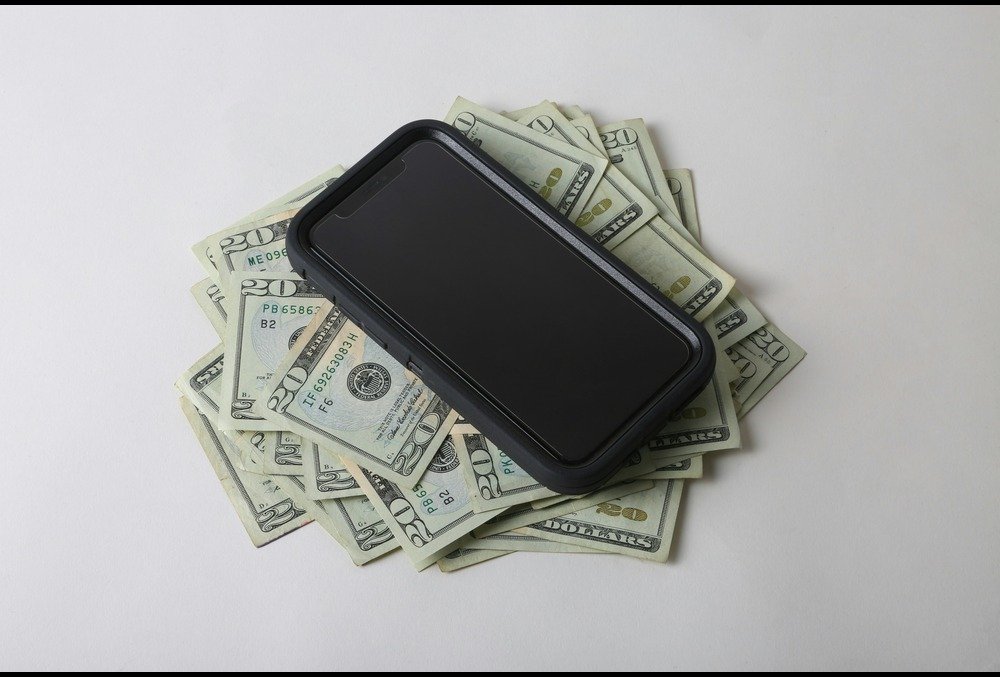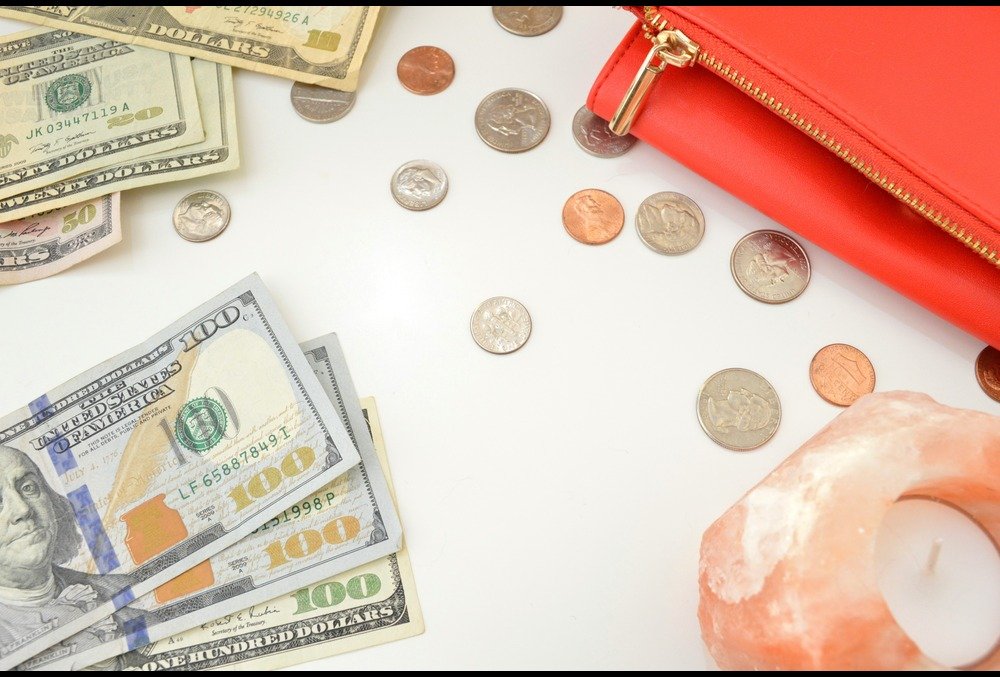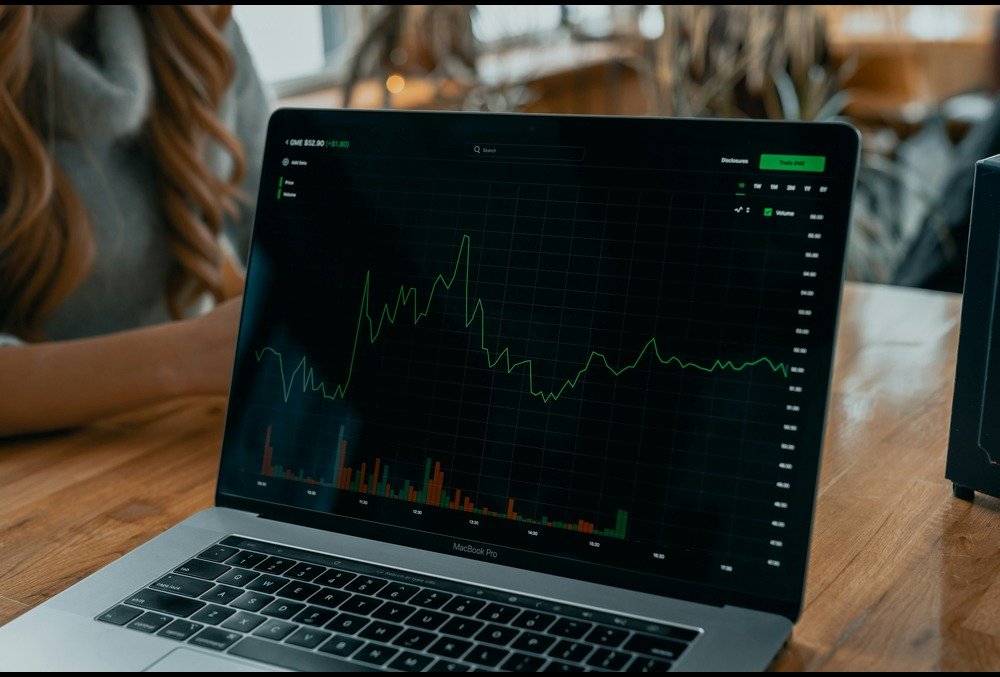Walking for money apps have transformed the way I think about daily exercise. Not only does walking reduce our risk of heart disease, diabetes, obesity, high blood pressure, and depression, but now it can also earn us actual money. This is one of the best ways to meet weight loss goals while earning extra cash.
Nowadays, there are over a dozen legitimate apps that pay you to walk, offering rewards in the form of cash or gift cards for something you do every single day. Apps that pay you for walking like Sweatcoin, CashWalk, Miles, BetterPoints, winwalk, WeWard, Evidation, and StepBet turn your daily steps into real cash, rewards, or discounts. While these walking apps that pay don’t generate huge income, they provide easy money for minimal effort. In fact, popular walking money apps offer users coins, gift cards, or real cash simply for completing your daily steps.
In this guide, I’ll share the 8 best apps that pay you to walk in 2025, explaining how each works and helping you choose the right get paid to walk apps for your lifestyle. Let’s discover how your daily stroll can become a surprising source of extra income!
Sweatcoin: Turn Steps into Digital Currency
Image Source: Medium
Sweatcoin stands out among walking for money apps by transforming your physical movement into a digital currency. Unlike traditional fitness trackers, this app rewards you with virtual coins that have actual redemption value. As one of the most downloaded get paid to walk apps, with over 25 million downloads, Sweatcoin has created a unique “movement economy” where your daily activity translates directly to earnings.
How Sweatcoin tracks your steps
Sweatcoin utilizes your smartphone’s built-in accelerometer and GPS location to monitor your movement. Nevertheless, the app doesn’t count just any movement—it employs a sophisticated verification algorithm to ensure you’re earning coins legitimately. This algorithm analyzes your steps against other data points including location, speed, consistency of movement, and direction.
For every 1,000 verified steps you take, you earn approximately 0.95 Sweatcoins (after a 5% commission fee). Importantly, the free version caps your earnings at 10 Sweatcoins daily, which equals about 10,000 steps. Furthermore, the app primarily counts outdoor steps where GPS signals are available, though newer iPhone models and Android devices can track indoor steps as well.
The verification process sometimes leads to discrepancies between your phone’s step counter and Sweatcoin’s tally. For instance, one user reported walking 10,000 steps but earning only 8.9 Sweatcoins one day, then 8.1 Sweatcoins the next day for the same step count. This occurs because the algorithm filters out movements that might be phone shakes, car rides, or other non-walking activities.
What you can redeem Sweatcoins for
Once you’ve accumulated enough Sweatcoins, you can spend them in several ways through the app’s marketplace:
- Physical products and services from over 300 partner brands
- Gift cards from retailers like Amazon and PayPal (though availability varies)
- Entries into auctions for high-value items like electronics
- Charitable donations to organizations such as Save The Children and UNICEF
The marketplace typically features 3-4 daily offers plus “marathon offers”—high-value products like smartphones and TVs that require months of step-saving. Daily offers change regularly, with new products added each day.
Regarding actual value, estimates suggest each Sweatcoin is worth approximately $0.05. Therefore, if you consistently reached the free tier maximum of 10 Sweatcoins daily, you might generate about $110 worth of value annually. Higher-value redemptions, such as a $25 Amazon gift card, might cost around 6,000 Sweatcoins.
Pros and cons of using Sweatcoin
Pros:
- Completely free to use, with optional premium subscriptions
- Provides genuine motivation to increase physical activity—research shows Sweatcoin users walk 20% more, even after six months of use
- Offers a variety of redemption options through hundreds of partner brands
- Features social elements including challenges and competitions
- Sweatcoins don’t expire, allowing you to save toward larger rewards
Cons:
- Limited earning potential on the free tier (10 Sweatcoins daily maximum)
- Verification algorithm sometimes undercounts legitimate steps
- Requires the app to run continuously in the background, potentially affecting battery life
- High-value rewards require significant time to earn—for example, earning enough for PayPal cash could take years
- Many marketplace offers are discounts rather than free products, often requiring additional payment
Compared to other apps that pay you for walking like CashWalk and Miles, Sweatcoin offers a more extensive marketplace but generally provides lower immediate cash value. Additionally, unlike StepBet, there’s no gambling element—your earnings are guaranteed, albeit modest.
Overall, Sweatcoin serves as an excellent supplementary walking money app for those seeking additional motivation to stay active, rather than a significant income source. If you’re already walking regularly, turning those steps into rewards—even modest ones—makes more sense than leaving that potential value on the table.
CashWalk: Simple Rewards for Daily Steps
Among the apps that pay you to walk, CashWalk offers perhaps the most straightforward approach to turning your daily steps into gift cards. This fitness tracking app keeps things simple with a clear system of rewards, making it accessible even for those new to walking money apps.
How CashWalk works
CashWalk is a free fitness app available on both Android and iOS devices that tracks your steps and rewards you for walking or running. The app syncs with your phone’s built-in pedometer function to measure how many steps you take, eliminating the need for GPS tracking and helping preserve battery life.
The reward system is refreshingly simple – you earn 1 coin for every 100 steps you take. However, CashWalk caps your daily earnings at 100 coins, which means only your first 10,000 steps each day count toward rewards. Essentially, if you’re an extremely active person who regularly exceeds this number, your additional steps won’t earn you extra coins.
Beyond walking, the app offers several supplementary ways to boost your earnings. These include answering surveys, playing scratch card games for bonus coins, and participating in their referral program. Notably, the referral system gives you 5% of whatever amounts your friends cash out, creating a lifetime bonus with no cap on earnings.
Types of rewards available
Once you’ve accumulated enough coins, you can exchange them for gift cards from numerous popular retailers. The selection is impressive, with over 30 different gift card options including:
- Amazon
- Walmart
- Google Play Store credit
- Apple
- Dunkin Donuts
- Taco Bell
- Starbucks
- eBay
- Spotify
- Nike
Specifically, the minimum cash out amount is a $5 gift card, which currently costs 5,000 coins. This means it takes about 50 days to earn your first reward if you consistently hit the maximum 10,000 steps daily. In previous years, redemption thresholds were lower – starting at around 2,000 coins for a $5 gift card, subsequently increasing to the current level.
Is CashWalk worth it?
The value proposition of CashWalk depends largely on your expectations and walking habits. At maximum efficiency, the app pays approximately $7.50 worth of gift cards per month, or about $90 annually.
The primary advantage of CashWalk is its simplicity. Unlike Sweatcoin with its verification algorithm that sometimes undercounts steps, CashWalk counts steps more reliably and works even on treadmills. Moreover, it functions without requiring GPS tracking, which helps conserve battery life.
Nonetheless, CashWalk has significant limitations. First, many users have reported frustration with the app’s tendency to increase redemption thresholds over time. Additionally, you must remember to open the app daily to claim your coins before midnight, or they expire.
When compared to other walking for money apps like Sweatcoin, CashWalk offers fewer features and social elements but provides a more straightforward path to gift card rewards. Meanwhile, apps like BetterPoints offer more diverse activities and community features that CashWalk lacks.
CashWalk is most appropriate for casual walkers who consistently take around 10,000 steps daily and don’t mind waiting approximately 50 days for a $5 reward. It serves as decent motivation for maintaining an active lifestyle, particularly if you’re already walking regularly and view the gift cards as a bonus rather than significant income.
Despite its limitations, CashWalk remains a legitimate walking money app that delivers on its promise to reward your steps – as long as you’re patient enough to wait for those rewards.
Miles: Earn While You Move
Image Source: The Verge
Miles stands as a unique contender in the landscape of walking for money apps by rewarding virtually every form of movement. Certainly it’s the most versatile among apps that pay you to walk, since it extends beyond just walking to create what its founders call a “universal travel rewards platform”.
What makes Miles different
Unlike other walking money apps that focus solely on steps, Miles rewards all modes of transportation. The app’s primary differentiator is its environmental focus—the greener your transportation method, the higher your reward multiplier. This eco-conscious approach sets it apart from competitors like Sweatcoin and CashWalk.
Another distinctive feature is the app’s technology that automatically detects your mode of transportation. Once you’ve downloaded Miles, it works quietly in the background, analyzing your speed and GPS data to determine whether you’re walking, cycling, or traveling by car.
Straightaway, you’ll notice Miles doesn’t just pay you for walking—it creates a comprehensive mobility rewards ecosystem. According to one source, “Miles is the world’s first universal miles earnings program – delivering value for every mile traveled, across every mode of transportation, anywhere in the world”.
First thing to remember, however, is that the app is shutting down on May 14, 2025, as announced on their official website. Given this timeline, it’s worth considering whether to invest time in building up rewards.
How to earn with Miles
Miles employs a clever multiplier system that rewards eco-friendly transportation:
- Walking or running: 10x miles per mile traveled
- Biking: 5x miles per mile
- Public transit (bus, train, boat): 3x miles per mile
- Carpooling or rideshare: 2x miles per mile
- Driving alone: 1x mile per mile
- Flying: 0.1x miles per mile
The app incorporates a tiered status system similar to airline loyalty programs. Everyone starts with Silver status and can progress to Gold or Platinum depending on monthly activity. Elite status doesn’t provide travel upgrades, yet it does offer better redemption rates and early access to rewards.
Plus, you can earn bonus miles through monthly challenges—for instance, completing 20 trips of at least two miles by walking, biking, or running. During the pandemic, Miles even introduced 20x bonuses for physical activities to encourage staying active while at home.
Best ways to redeem Miles points
When it comes to redemption value, approximately 5,000 miles equals $1 in reward value. This means if you want a $10 gift card, you’ll need to accumulate 50,000 miles.
The Miles app features partnerships with over 300 retailers offering various rewards. These include:
- Gift cards from Starbucks, Amazon, and Target
- Discounts on services like HelloFresh
- Free rentals from Silvercar
- Products from retailers including Whole Foods, Canon, and Cole Haan
In contrast to other walking for money apps, Miles occasionally offers much better redemption rates. For instance, some users report finding gift cards priced at 3,000 miles per $1 for Starbucks, Target, and Nike—though these premium offers typically sell out within hours.
Obviously, the most reliable redemption options are Amazon gift cards, which usually cost between 5,000 and 10,000 miles per $1. The app also features raffle drawings where you can use miles to enter contests for higher-value gift cards, sometimes worth up to $250.
Ultimately, while Miles doesn’t generate substantial income, it rewards movement you’re already doing anyway. When compared with other apps like BetterPoints or WeWard, Miles offers greater flexibility in how you earn but provides similar redemption values to most walking money apps.
BetterPoints: Walk, Earn, and Give Back
BetterPoints distinguishes itself among walking for money apps by combining fitness rewards with community impact. Within the world of apps that pay you to walk, BetterPoints creates a unique ecosystem where your steps not only benefit your wallet but can simultaneously support local charities and businesses.
How BetterPoints tracks your activity
BetterPoints employs sophisticated technology to monitor your movements accurately. The app utilizes GPS tracking, motion sensing, and advanced server-side algorithms to verify and reward specific behaviors. Unlike some competitors, BetterPoints records various transportation methods beyond just walking.
The tracking system automatically detects when you’ve been active for a significant period—typically about five minutes—and marks the activity as complete only after you’ve stopped moving for approximately five minutes. In order to qualify, activities must exceed five minutes total duration with at least four “moving and qualifying” minutes. Consequently, brief movements like walking around your home won’t register.
BetterPoints rewards diverse transportation choices, giving points for running, walking, cycling, and even using public transport. This makes it more versatile compared to apps like Sweatcoin or CashWalk that primarily focus on steps alone.
Earning and spending BetterPoints
The earning structure varies depending on your local program, as many BetterPoints initiatives are regionally focused. For instance, in Leicester, participants earn 10 BetterPoints twice daily for running, walking, or cycling trips over half a mile. Likewise, public transport users receive 10 BetterPoints twice daily for journeys exceeding one mile.
Many programs offer additional incentives through “BetterTickets”—entries into prize draws that can win you bundles of extra points. Throughout the year, special challenges and boosted reward periods further increase earning potential.
As for redemption value, 1,000 BetterPoints equals £1 (approximately $1.27). Once accumulated, these points can be exchanged for:
- High street vouchers from major retailers
- Local business vouchers supporting independent traders
- Cash donations to hundreds of charities
The redemption process happens directly within the app, generating digital vouchers for immediate use in-store or online. One distinctive feature is their “Tap&Clear” technology allowing small businesses to accept and nullify vouchers without needing barcode scanners.
Charity and community features
What truly sets BetterPoints apart from other walking money apps is its strong focus on community impact. Every user can donate their earned points to hundreds of local and national charities directly through the app. When donated, BetterPoints converts these to cash donations once the charity accumulates at least 20,000 points.
Many BetterPoints programs are actually partnerships with local governments aimed at promoting sustainable transportation and reducing emissions. For example, one campaign in Falkirk Council replaced approximately 96,851 single-occupancy car trips with active alternatives, avoiding an estimated 42.3 tons of CO2 emissions.
The app frequently incorporates community challenges that encourage exploration of local areas while earning rewards. Some programs, like the one at the University of Sheffield, even reward participation in community-building activities such as campus litter picks.
In this regard, BetterPoints offers something distinct from other apps that pay you to walk like Sweatcoin, CashWalk, or Miles. Instead of focusing solely on individual rewards, it creates a virtuous cycle where your activity benefits your health, your wallet, local businesses, and community causes.
winwalk: Walk and Get Gift Cards
In a marketplace filled with walking for money apps, winwalk takes a distinctive approach by focusing exclusively on gift card rewards. This fitness tracking application combines accurate pedometer functionality with a straightforward reward system, making it an appealing option for those seeking tangible benefits from their daily walks.
How winwalk counts your steps
Initially designed as a pedometer, winwalk utilizes your phone’s built-in sensors to track movement accurately. The app functions without GPS tracking, thus preserving battery life—a significant advantage over several competing applications. Plus, winwalk continues counting steps even when your phone is tucked away in a pocket or bag, offering greater flexibility for users.
The reward structure follows a simple formula: you earn 1 coin for every 100 steps taken. Even so, like many walking money apps, winwalk caps daily earnings at 100 coins, equivalent to 10,000 steps. In other words, reaching this daily goal maximizes your rewards potential.
For those using wearable fitness trackers, winwalk offers Google Fit integration, allowing seamless synchronization with your existing step data. This compatibility extends to smartwatch users seeking to consolidate their fitness tracking across multiple devices. Concurrently, the app tracks additional metrics beyond step count, including:
- Walking distance traveled
- Calories burned
- Total walking time
These comprehensive statistics provide a more complete picture of your activity levels, helping monitor health progress over extended periods.
Gift card options and redemption process
After accumulating sufficient coins, you can exchange them for digital gift cards from various popular retailers. Indeed, the selection varies by country, yet typically includes major brands such as Amazon, Walmart, Google Play, and numerous others. These digital rewards are delivered instantly upon redemption—a feature that distinguishes winwalk from several competitors that impose waiting periods.
The redemption threshold varies depending on your location. In most countries, it requires approximately 16,000 coins for a $10 gift card. Given the daily earning cap of 100 coins, this means consistently hitting your 10,000 step goal for roughly 160 days to earn a single reward. Henceforth, the effective earning rate equates to about $0.05 worth of coins daily.
Notwithstanding these constraints, winwalk implements several security measures to maintain system integrity. Users must utilize a device with a valid SIM card to earn walking rewards. Additionally, the app may require phone number verification or third-party authentication before allowing redemptions. These precautions help prevent fraudulent activity that could undermine the reward ecosystem.
Alongside walking, winwalk offers supplementary earning opportunities through “missions”—including watching ads, completing surveys, and playing games. These additional activities can potentially accelerate your earnings beyond the walking-only rate.
Among various walking apps that pay, winwalk positions itself between Sweatcoin’s marketplace approach and CashWalk’s straightforward gift card system. Unlike BetterPoints’ community focus or StepBet’s gamification elements, winwalk maintains a singular emphasis on individual rewards without social features. Similarly, it lacks the transportation variety of Miles or the health research component of Evidation, yet offers a more streamlined experience than WeWard’s exploration-based model.
WeWard: Explore and Earn
WeWard has emerged as one of the most popular walking for money apps, with a community of over 25 million users across 29 countries. Unlike other apps that pay you to walk, WeWard combines step tracking with location-based exploration, creating a more engaging outdoor experience.
How WeWard encourages outdoor walking
WeWard transforms ordinary walks into adventures by rewarding not just steps but also exploration. The app features a built-in map showing interesting locations, monuments, parks, and shops nearby. By visiting these marked places, users earn additional points beyond their regular step rewards.
This exploration-focused approach has proven effective—WeWard users typically increase their walking activity by 24% after downloading the app. Predominantly, the app employs your smartphone’s built-in sensors to track steps accurately without draining your battery.
The app effectively motivates consistent activity through timely notifications. As one user reported, “I found myself really enjoying the reminders it gave me to increase my steps each day”. These gentle nudges might say something like “Your next win is just a few steps away! Only 183 more steps to go”. Throughout daily use, these prompts help maintain momentum.
Earning Wards and spending them
The reward structure centers around “Wards”—points you earn primarily through walking. For every 10,000 steps, you earn 1 point, which accumulates in your account. Remarkably, these points can be redeemed in several ways:
- Cash transfers via PayPal or Venmo
- Gift cards from over 100 top brands
- Charity donations to causes you care about
WeWard has transferred over USD 30 million to users and facilitated USD 1.5 million in charitable donations. The app partners with over 500 brands, offering exclusive deals and discounts for WeWard users.
The value of Wards varies, essentially depending on how you redeem them. A significant reward example shows that 10,000 Wards can equal 10,000 airline points or a USD 150 gift card or cash. Some dedicated users reportedly earn up to USD 1,000 annually.
Unique features of WeWard
What sets WeWard apart from other walking apps that pay is its comprehensive gamification system. The app includes Experience Points (XP) alongside Wards, with leaderboards where you can compete against friends. The top three performers in each league earn weekly bonus Wards.
Another distinctive feature is the streak system, which rewards consistent daily activity. Undeniably, this has been effective—after implementing streak restoration features, users achieving seven-day streaks increased by 14%.
WeWard also offers collectible “WeCards” that unlock additional rewards and recently introduced a credit card that provides extra points for health and wellness purchases.
With this in mind, WeWard’s environmental impact deserves mention—the company reports that user activity has averted 750,000 tons of CO2, positioning it as an environmentally conscious option compared to other walking money apps like Sweatcoin or StepBet.
One user testimony demonstrates the app’s potential impact: “I was able to redeem many gift cards from my family’s favorite stores over the last year,” while losing 80 pounds in 11 months.
Evidation: Get Paid for Healthy Habits
With almost 5 million members earning over 7.1 billion points in 2022 alone, Evidation has created a unique niche among walking for money apps by combining health research with financial rewards. Unlike Sweatcoin or CashWalk that focus solely on steps, Evidation rewards multiple healthy behaviors.
Activities that earn you points
Evidation allows you to earn through everyday health activities beyond just walking. You can accumulate up to 40 points daily from connected health apps and wearables. These points come from five main categories:
- Walking/Wheelchair (8 points daily)
- Exercise including biking, running, swimming (8 points daily)
- Sleep tracking (8 points daily)
- Nutrition logging (8 points daily)
- Vitals monitoring like weight, heart rate, blood pressure (8 points daily)
Beyond these baseline activities, Evidation offers “cards” – mini-action steps that provide additional points through reading health articles, answering questions about your mood, and monitoring your mental health. In fact, completing these cards typically helps members reach reward thresholds much faster than relying solely on activity tracking.
Health surveys and research participation
What truly separates Evidation from apps like Miles or WeWard is its focus on health research. Members can opt into various research studies ranging from quick single surveys to comprehensive multi-year observational studies.
These research opportunities examine conditions like chronic pain, diabetes, heart disease, and even COVID-19. By sharing your activity data and completing surveys, you contribute to meaningful health research while earning additional points.
How to cash out your points
Once you accumulate 10,000 points, you can redeem them for $10. Evidation offers several redemption options:
- PayPal payments
- Bank deposits
- Gift cards
- Prepaid Visa cards (virtual or physical)
- Charity donations
After redemption, you’ll receive an email linking to Evidation’s payment partner where you select your preferred reward method. Importantly, points expire after 12 months of inactivity, although simply completing one card annually maintains your balance.
Although not as lucrative as StepBet’s gambling approach, Evidation provides steady rewards while supporting health research that benefits everyone.
StepBet: Bet on Yourself to Stay Active
Unlike other walking money apps offering guaranteed rewards, StepBet introduces a thrilling gamification element—putting your own money on the line to motivate activity. In this unique app that pays you to walk, your wagers directly fund your potential winnings.
How StepBet games work
StepBet analyzes your historical step data to create personalized Active goals (somewhat challenging) and Power goals (more challenging). Most games last six weeks, with the first week typically serving as a “warm-up” where no one gets disqualified. Thereafter, you must meet weekly targets—usually four Active days and two Power days—or lose your bet. The standard wager is $40, which must be paid upfront. Your smartphone or wearable device (Fitbit, Garmin, Apple Watch) tracks your progress, syncing directly with the app.
Winning real money through fitness goals
Following successful completion of all weekly goals, winners split the pot minus StepBet’s 15% commission. Given that the average success rate is 73%, consistent players can expect modest profits. Impressively, StepBet has paid out over $148 million to winners, with research showing participants increase their daily steps by 31.2% on average. StepBet offers a “No Lose Guarantee”—if everyone meets their goals, the company waives its commission to ensure players at least get their money back.
Tips to win more StepBet challenges
To maximize your chances:
- Check your device’s battery before bed to prevent mid-day tracking failures
- Sync your tracker with StepBet daily
- Complete Power days early in the week
- Never switch trackers mid-game
- Take full advantage of the warm-up week to establish your routine
Considering its focus on accountability, StepBet serves as an effective motivator among walking for money apps by creating genuine financial stakes.
Conclusion
Walking apps that pay have transformed everyday exercise into a rewarding experience both physically and financially. Throughout this guide, we’ve explored eight innovative platforms that turn your steps into tangible rewards.
Sweatcoin offers a digital currency system with hundreds of partner brands, making it perfect for those who enjoy variety in their rewards. CashWalk provides a straightforward approach with its simple coin-per-step system and gift card redemptions. Miles stands out by rewarding all forms of movement, though potential users should note its upcoming shutdown in May 2025.
BetterPoints differentiates itself through community impact features, allowing you to donate earnings to charitable causes. Likewise, winwalk focuses exclusively on gift card rewards with a user-friendly interface that preserves battery life. WeWard combines step tracking with location-based exploration, creating an adventure-focused experience that has attracted over 25 million users worldwide.
Evidation goes beyond mere step counting by rewarding multiple healthy behaviors while contributing to meaningful health research. StepBet takes a completely different approach with its wagering system, creating financial stakes that significantly boost motivation.
Certainly, none of these apps will replace your day job. Most users earn between $5-10 monthly with consistent use. Still, why leave money on the table for something you’re already doing? These platforms effectively gamify fitness, potentially increasing your daily activity while providing modest rewards.
The best strategy might involve using multiple apps simultaneously. Perhaps combine StepBet for motivation, Sweatcoin for variety, and Evidation for health insights. This approach maximizes your earnings while diversifying your rewards.
Remember, the true value lies not just in the financial rewards but also in the health benefits from increased physical activity. These walking apps simply add a delightful bonus to something tremendously beneficial for your wellbeing. Your daily steps now contribute to both your health and your wallet – a winning combination for anyone looking to stay active in 2025.
FAQs
Q1. What are the best apps that pay you to walk in 2025? Some of the top apps that pay you to walk in 2025 include Sweatcoin, CashWalk, Miles, BetterPoints, winwalk, WeWard, Evidation, and StepBet. Each offers unique features and reward systems for tracking your steps and other physical activities.
Q2. How much money can you realistically earn from walking apps? Most users earn between $5-10 monthly with consistent use of walking apps. While not substantial, it’s a nice bonus for something you’re already doing. Some dedicated users report earning up to $1,000 annually from apps like WeWard.
Q3. Are walking apps safe to use and legitimate? Yes, reputable walking apps are safe and legitimate. Many have millions of users and have paid out substantial rewards. However, it’s important to research each app and read user reviews before signing up. Be cautious of apps that require excessive personal information or seem too good to be true.
Q4. Can you use multiple walking apps simultaneously? Absolutely! Using multiple apps simultaneously can maximize your earnings and provide diverse rewards. For example, you could combine StepBet for motivation, Sweatcoin for variety in rewards, and Evidation for health insights and research participation.
Q5. Do these apps drain your phone’s battery quickly? Battery drain varies between apps. Some, like Sweatcoin, may use more battery due to GPS tracking. Others, like winwalk, are designed to preserve battery life. Many users find the rewards worth the slight increase in battery usage, but it’s something to consider when choosing which apps to use.






